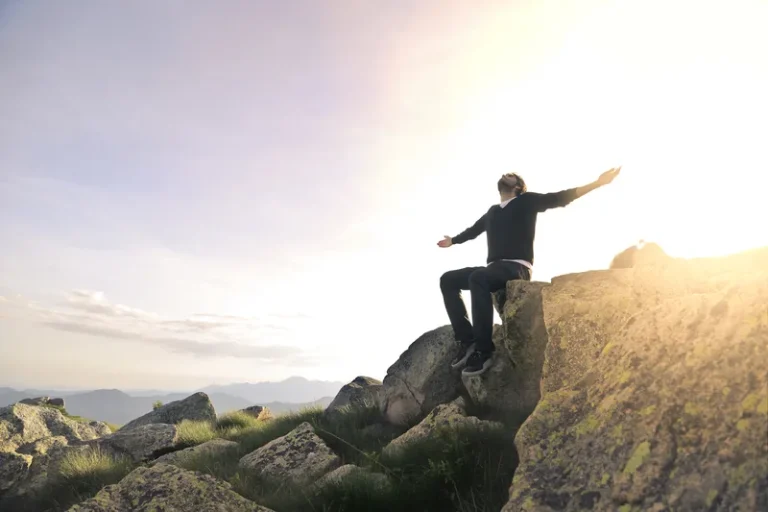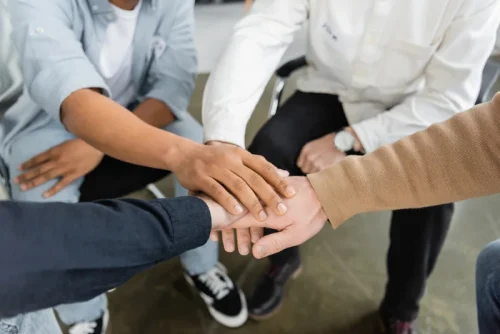
Our addiction recovery support groups, access to rehab after programs and 12-step meetings, and other treatment options can provide strategies for overcoming addiction or handling triggers and temptations. Contact Gateway Foundation today to learn more about the programs and services that best meet your needs. Before attending a social event, remember why you chose not to drink alcohol. Establish clear intentions and goals for the gathering, such as connecting with others, having meaningful conversations, or simply enjoying the company. Setting goals can help you get the most out of the gathering and navigate tricky situations. Have an exit strategy if needed, such as checking the nearest bus stop, pre-booking transport, or calling upon a sober friend.
Manage Physical Pain

However, the word is often used in different ways in different contexts. Many 12-step programs suggest that sobriety means total abstinence, which means never using the substance again. Other definitions, however, focus on the process of recovery and coping habits that support health and wellness over the long term. Acknowledging and celebrating the hard work of recovery is helpful for keeping you motivated and reminding you why you took this brave step toward sobriety in the first place. Just be sure that your rewards don’t involve drugs or alcohol.
- Dopamine depletion can cause apathy, boredom, and lack of motivation.
- Because he is a member of a support group that stresses the importance of anonymity at the public level, he does not use his photograph or his real name on this website.
- You might make some mistakes—like drinking when you didn’t intend to or arguing with someone who offers you a drink.
- It’s an opportunity to grow into your bones, and every single crap thing that happens to you on the way only makes you stronger.
You can’t change your partner

One 2020 study found potential benefits of combining in-person and online support methods. You might find that you get to know each other much better when you’re creating new memories—rather than standing around in the same old bars. They might have fun exploring new places and trying new things with you. Consider reaching out to a vocational rehabilitation counselor or career coach to help you update your resume, practice job interview skills, and locate jobs that match your skills and experience. Hosted by therapist Amy Morin, LCSW, this episode of The Verywell Mind Podcast shares how to avoid repeating mistakes and build better habits.
- Create a list of individuals who you can call to go grab a quick bite or simply for a cup of coffee.
- And if you know you’re likely to be around people who drink, having a plan and a support system can make things less stressful.
- Your sobriety is heavily dependent on being both optimistic and realistic.
Build a Support Network
It was a horrible cycle of self-medicating my anxiety with alcohol which, in turn, only made my anxiety levels worse. I was stressed out all of the time and had no healthy coping mechanisms for that stress. There are numerous reasons why you may want to avoid alcohol. Whether it’s to improve your physical health or state of mind, it can be beneficial to explore the role alcohol plays in your life. Socializing without alcohol can open up new possibilities for connection, fun, and personal growth. Embrace the opportunity to experience social interactions in a different light and create meaningful relationships that go beyond alcohol.
Don’t Focus on Other’s Behavior
Excessive drinking has numerous impacts on your body and mind, ranging from mild to severe. Learn which signs to look out for, and how to care for your well-being. Learn that you have choices and that you can maintain control.
Focus on eating nutritious food.

To combat this, drink plenty of water and consider using electrolyte replacement drinks or supplements. Aim for at least 8-10 glasses of water per day, and more if you’re experiencing severe symptoms. Age, genetics, and overall health can impact the withdrawal timeline. Older individuals or those with pre-existing health conditions may face more challenges during withdrawal.


Plus, you might meet some cool people, and that’s always a double win. But also, don’t be afraid to put yourself out there and get involved in activities around your community. Not on its own, but maybe it starts a conversation and a friend comes over just to sit with you and make sure you’re good. Remember, it’s not that sobriety is terrible, but that your brain is trying to grapple with the sudden loss of dopamine.
It’s one of the many ways you will relearn how to enjoy life again without alcohol. Getting sober is like learning to walk again after a terrible accident. You should be able to go about living your life without drinking alcohol, but you feel utterly useless and have no idea what to do with yourself. While there are always going to be those who choose to use, you have the choice to not use. You must be diligent in your awareness of your surroundings, so you do not find yourself in a dangerous predicament.
Alcohol didn’t make life fun. It just made you not care.
Acute anxiety and depression from the withdrawal process can ease within a few days to a week. But for many people, lingering feelings of anxiety, depression, and general malaise can last weeks, months, or even longer. being sober around drinkers Drinking is a holiday tradition for many families, but traditions can also transform and change over time. Many may not know that about one-third of U.S. adults report consuming no alcohol at all in the past year.
